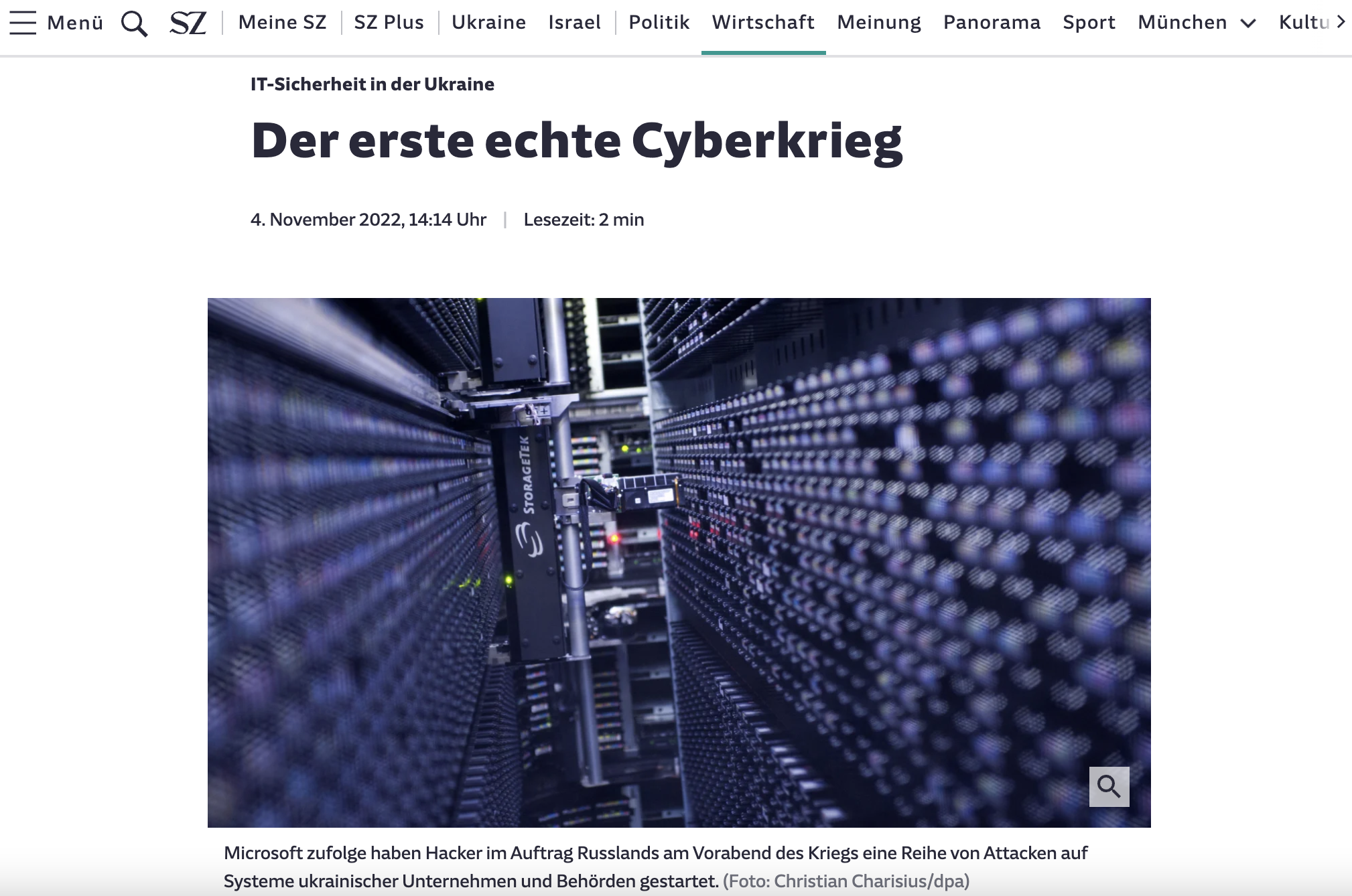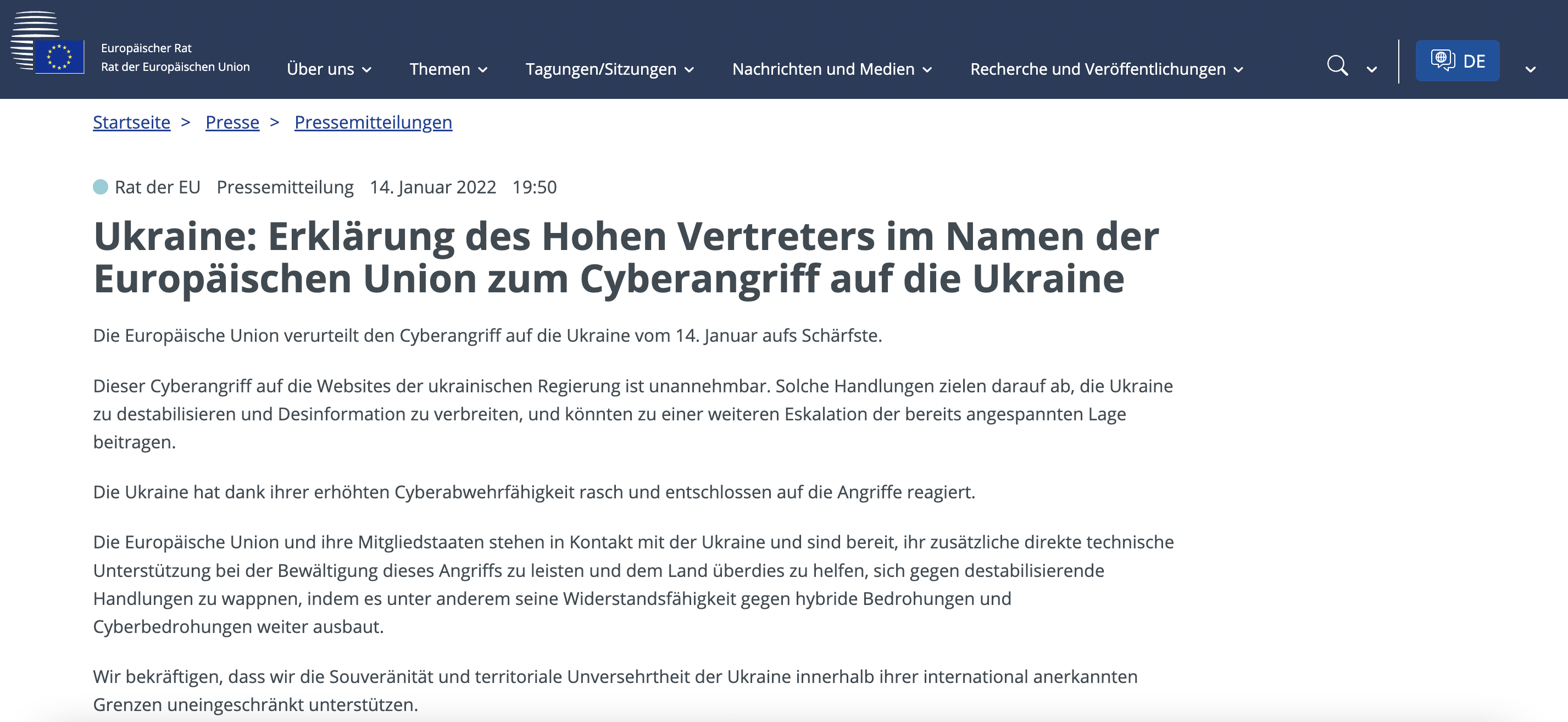The Russia-Ukraine ConflictThe Russia-Ukraine Conflict
Chapter 9
Information warfare?
by Pauline Niggemann
Information warfare? (1/5)
Background

https://www.sueddeutsche.de/wirtschaft/mircosoft-ukraine-cybersicherheit-russland-hackerangriff-it-sicherheit-1.5687083
Headline from Sueddeutsche Zeitung, a German nationwide daily newspaper, from November 4, 2023: "IT security in Ukraine: the first real cyber war"
Information warfare encompasses a wide range of operations: Taking over government websites, attacking communication systems, stealing sensitive information (military as well as private), and also spreading false information through various channels.
On the one hand, this form of warfare aims to influence people psychologically; on the other hand, it also aims to interfere with technical systems, for example to steal, manipulate or even destroy information.
Information warfare? (2/5)
Specific technical attacks

https://www.consilium.europa.eu/de/press/press-releases/2022/01/14/ukraine-declaration-by-the-high-representative-on-behalf-of-the-european-union-on-the-cyberattack-against-ukraine/
EU press release from January 14, 2022 condemning the cyberattack against Ukraine
Even before the Russian full-scale invasion against Ukraine, namely on January 14, 2022, a suspected pro-Russian hacker group with links to the Russian government attacked various Ukrainian government websites.
Information warfare? (3/5)
Manipulation of the content
Illustration: Marlin Beringer
Since February 24, 2022, we observe attempts by Russia to influence the narrative of the war.
In addition, propaganda on the internet spreads quickly and around the globe.
Information warfare? (4/5)
Psychological manipulation and interference with technical systems - What does the law say?
Illustration: Marlin Beringer
There are no specific regulations or bans on information warfare. In war, however, all military (technical) systems must distinguish between the civilian population and soldiers as well as between military objectives and civilian objects. This means that only military objectives or soldiers may be lawfully attacked, also in the case of information warfare.
The manipulation of content is therefore not prohibited; propaganda has been used in every war and is considered a permissible means. Technical interventions, which also have a physical impact like other military attacks and are often described as cyber warfare, are in contrast subject to prohibitions and regulations under international law.
Information warfare? (5/5)
Problem: Anonymity of the Internet
Illustration: Marlin Beringer
The biggest problem in practice, however, is the anonymity of cyberspace. This often prevents the attribution of an attack to a specific state and limits possible legal prosecution.